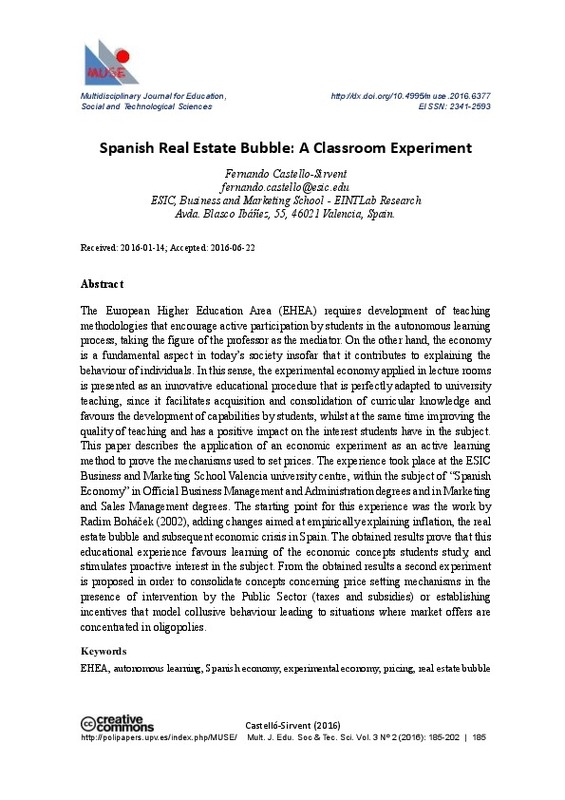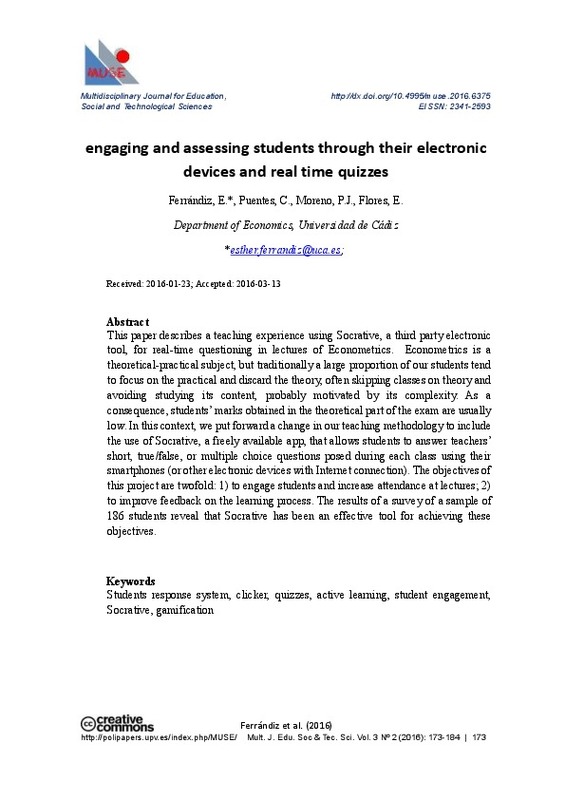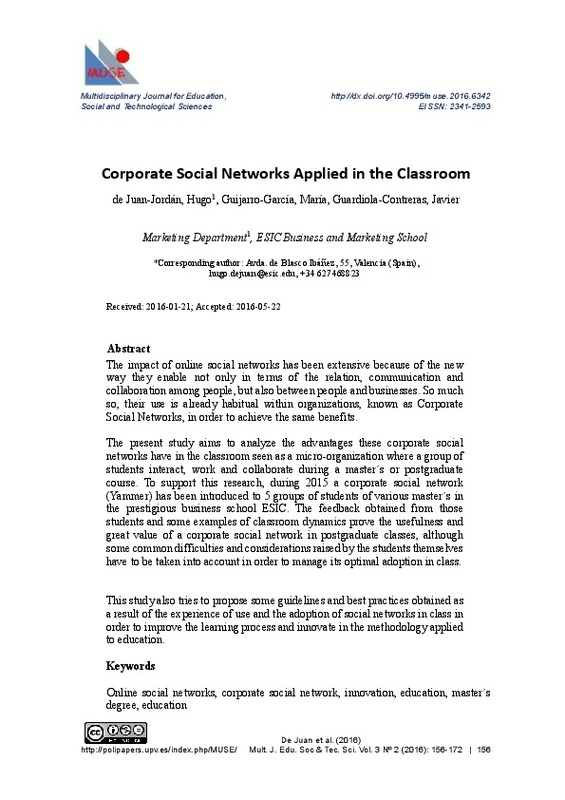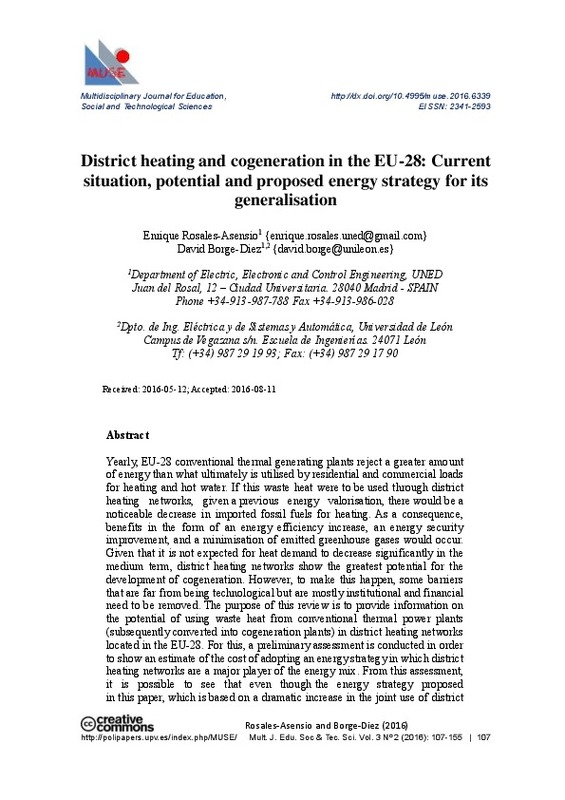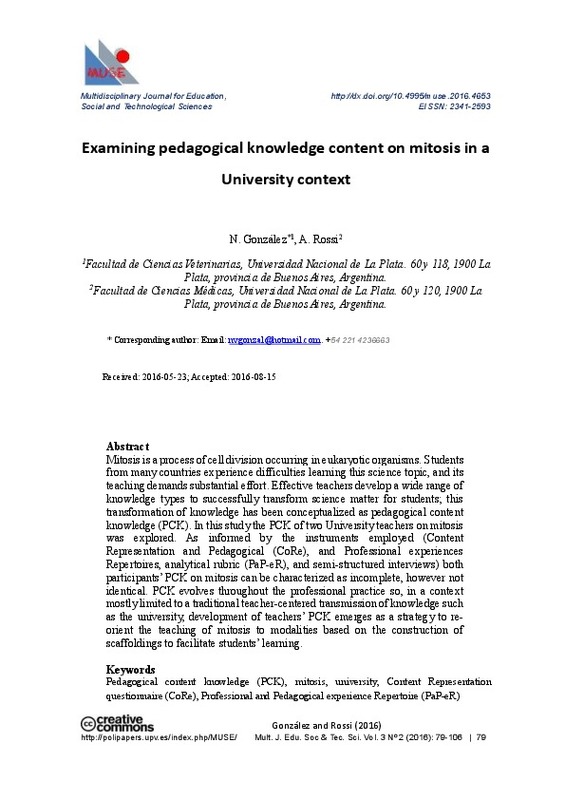- RiuNet repositorio UPV
- :
- Investigación
- :
- Material investigación. Editorial UPV
- :
- Revistas UPV. Editorial UPV
- :
- Multidisciplinary Journal for Education, Social and Technological Sciences
- :
- Multidisciplinary Journal for Education, Social and Technological Sciences Vol. 03, Núm. 2 (2016)
JavaScript is disabled for your browser. Some features of this site may not work without it.
Refinar
Desde el lunes 3 y hasta el jueves 20 de marzo, RiuNet funcionará en modo de solo lectura a causa de su actualización a una nueva versión.
Multidisciplinary Journal for Education, Social and Technological Sciences Vol. 03, Núm. 2 (2016)
Tabla de contenidos
- Applied Mathematical Problems in Engineering
- MATLAB as a tool as Analysis and Problem Solving Competency Development in Chemical Engineering Degree using MATLAB
- Mentoring program for students newly enrolled in an Engineering Degree
- Circumstances and Conditions in the Accreditation Process of University Degrees at the Albacete School of Industrial Engineering (Spain)
- Students Academic Progress Analysis at the Escola Politècnica Superior of the Universitat de les Illes Balears: Background implications
- Examining pedagogical knowledge content on mitosis in a University context
- District heating and cogeneration in the EU-28: Current situation, potential and proposed energy strategy for its generalisation
- Corporate Social Networks Applied in the Classroom
- Engaging and Assessing Students through their Electronic Devices and Real Time Quizzes
- Spanish Real Estate Bubble: A Classroom Experiment



